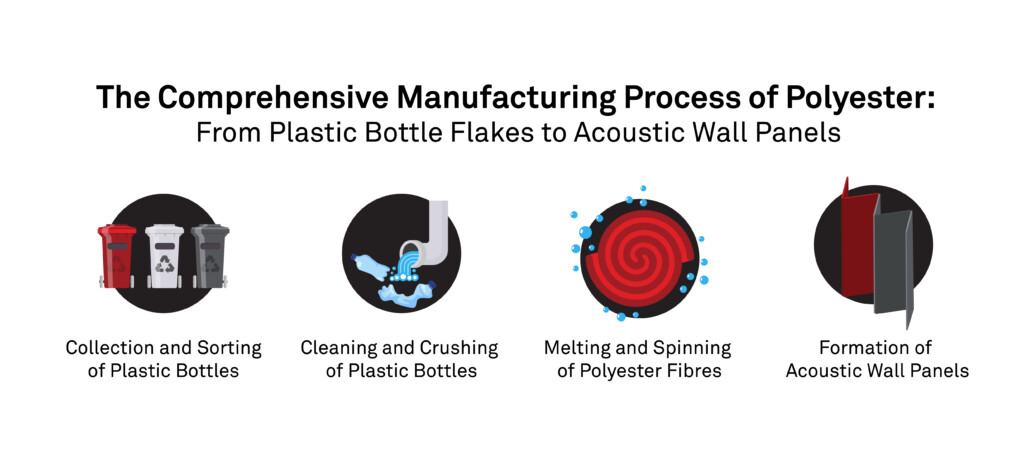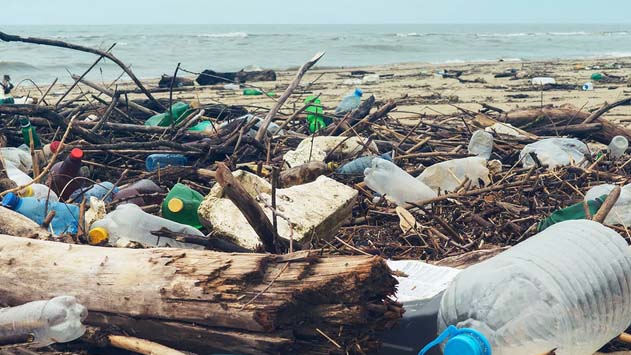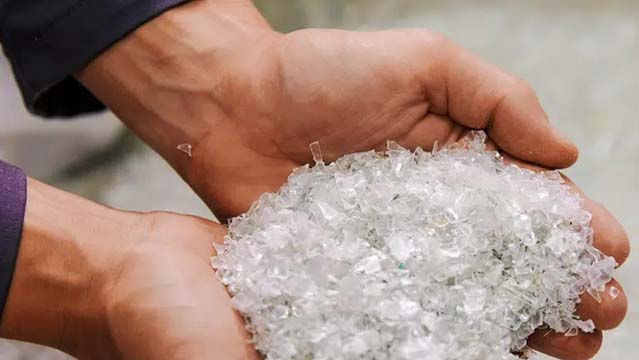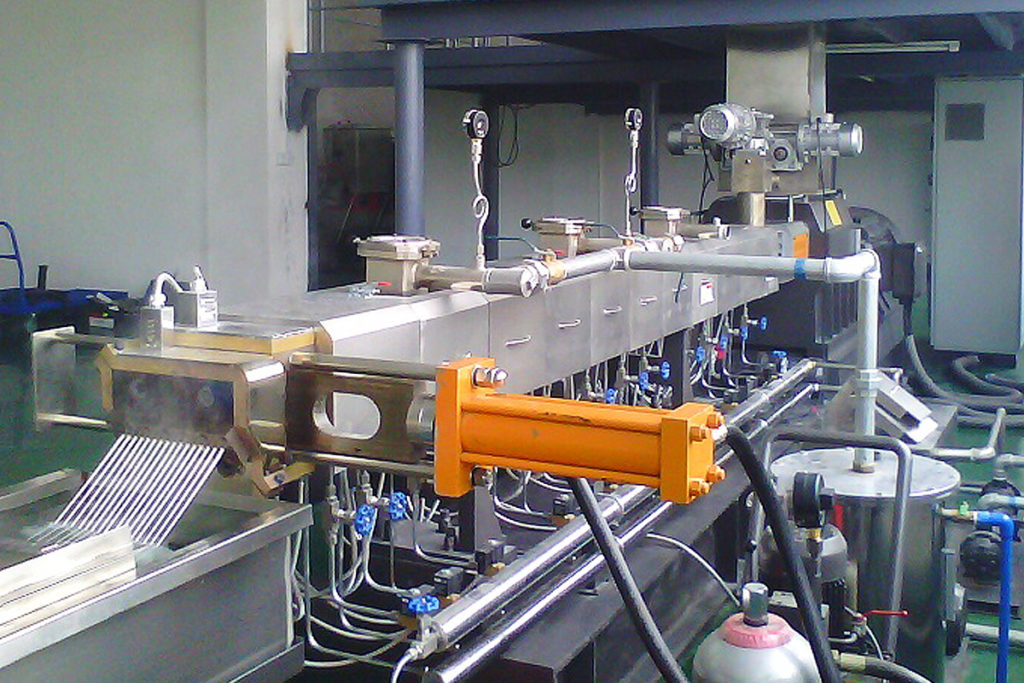The Comprehensive Manufacturing Process of Polyester: From Plastic Bottle Flakes to Acoustic Wall Panels

Polyester has become a widely used synthetic fibre due to its durability, strength, and versatility. One of the most popular uses of polyester is in the production of acoustic wall panels, which are designed to enhance sound quality and reduce noise pollution in various settings. In this article, we will explore the manufacturing process of polyester from recycled plastic bottle flakes all the way to acoustic wall panels.
Collection and Sorting of Plastic Bottles
The first step in the manufacturing process of polyester is the collection and sorting of plastic bottles. These bottles are typically collected from recycling bins or waste disposal sites and transported to a recycling facility. At the recycling facility, the bottles are sorted based on colour and quality to ensure that only high-quality raw material is used for the production of polyester.

Cleaning and Crushing of Plastic Bottles
Once the plastic bottles have been sorted, they are cleaned and crushed into small pieces or flakes. The cleaning process involves removing any labels, caps, or other non-plastic materials that may be present in the bottles. The crushing process helps to break down the plastic into smaller pieces that can be melted down and spun into fibres.

Melting and Spinning of Polyester Fibres
Next, the plastic bottle flakes are melted down and spun into polyester fibres. This process involves heating the flakes to a high temperature until they become molten. The molten plastic is then extruded into long, continuous fibres, which are cooled and wound onto spools. These spools of polyester fibres are then ready to be used in the production of acoustic panels.

Formation of Acoustic Panels
To create acoustic panels, the polyester fibres are first woven or knit into a fabric. This fabric is then treated with a variety of coatings and finishes to increase its sound absorption and insulation properties. Some of the coatings used in the production of acoustic
panels include acoustic membranes, which help to trap sound waves and reduce noise pollution.
panels include acoustic membranes, which help to trap sound waves and reduce noise pollution.

Challenges and Opportunities in the Manufacturing Process
The manufacturing process of polyester involves several challenges and opportunities. One of the main challenges is the collection and sorting of plastic bottles, which can be time-consuming and labour-intensive. However, this stage of the process also presents an opportunity to reduce waste and promote recycling.
Another challenge is the melting and spinning of polyester fibres, which requires specialized equipment and safety measures to ensure that workers are not exposed to harmful chemicals or high temperatures. However, this stage of the process also presents an opportunity to improve efficiency and reduce energy consumption through the use of advanced technologies and equipment.
Efficacy and Environmental Impact of Acoustic Wall Panels
Acoustic wall panels made from polyester fibres have been shown to be highly effective at absorbing sound and reducing noise pollution in various settings, including recording studios, concert halls, and offices. Additionally, these panels offer insulation properties that can help to reduce energy costs and promote sustainability.
However, it’s important to consider the environmental impact of the production of these panels. While the use of recycled plastic bottles as the raw material helps to reduce waste and promote recycling, the production process itself can still contribute to greenhouse gas emissions and other environmental issues. To mitigate these impacts, companies can implement sustainable practices such as using renewable energy sources and reducing waste throughout the production process.
Conclusion
The manufacturing process of polyester from plastic bottle flakes all the way to acoustic wall panels involves several stages, each with its own challenges and opportunities. By using recycled plastic bottles as the raw material, this process helps to promote sustainability and reduce waste. The resulting acoustic wall panels are highly effective at absorbing sound and promoting insulation, while also presenting
opportunities for sustainable practices in their production. As we continue to explore new ways to enhance the efficacy and sustainability
of polyester manufacturing, we can expect to see even more innovations in the field of acoustic wall panels and beyond.
opportunities for sustainable practices in their production. As we continue to explore new ways to enhance the efficacy and sustainability
of polyester manufacturing, we can expect to see even more innovations in the field of acoustic wall panels and beyond.
Do you require assistance in implementing moving wall systems to create highly infinitely reconfigurable workspace? Contact Creatif now and we will be more than pleased to discuss.